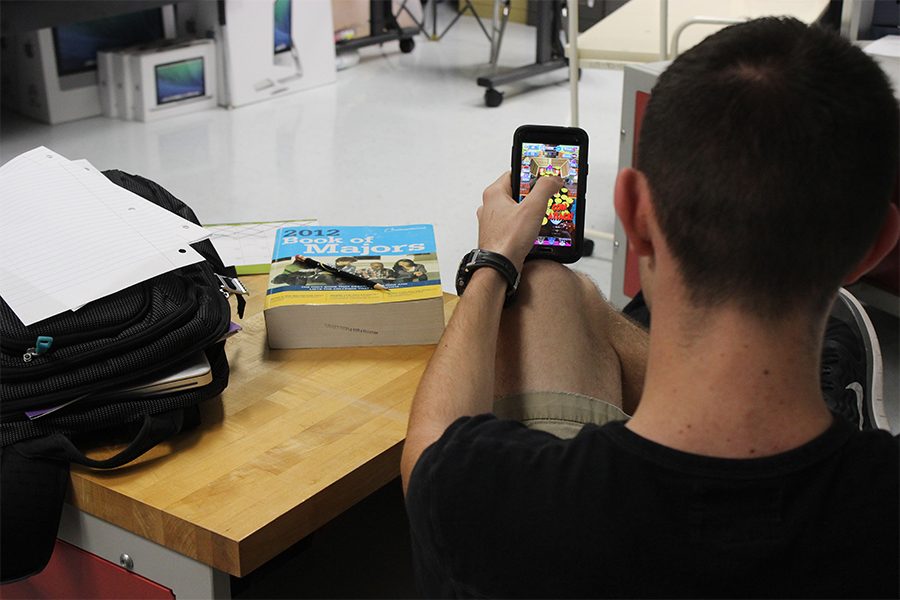Just Do It… Later
Students and teachers talk about the effects of procrastination
Photo illustration by Taylor Wilson.
According to Psychology Today, in 2009 the average college student spent 3 hours a day checking social media and only 2 hours a day studying. The GPA of college students who use social media regularly everyday is a full point lower than their peers who don’t. One out of ten workers spend more time on the internet than working and that cost the American economy 650 billion dollars a year.
She stays up all night to do a project that’s due the next day. She spends about three and a half hours on homework each night, and sophomore Amber Villalobos rushes to get her work done so she doesn’t fail.
Villalobos said time management isn’t her strong suit, and because she procrastinates, she works extra hard to pass her classes.
English teacher Kristy Chamberlain is an expert at doing things in a timely manner and she’s always been that way.
“I’ve never been a procrastinator,” she said. “As soon as I get a project to do, I like to get it done and I prioritize and plan out.”
Chamberlain said she tries to share her good habits with other people so they can benefit as well.
“When you get an assignment and it’s not due the next day, but you know when it’s due, you plan out when you should have one part done and when you should have the next part done,” Chamberlain said. “I use it with my own kids, and I try to use it with my students.”
Time management is a big part in getting work done in a timely manner, Chamberlain said. She said she pictures her day to figure out what and when everything needs to be done.
“As students, it’s kind of hard to picture all of that at one time, but I’m really big on making lists and writing things down so that you know what you need to accomplish on a daily basis,” she said. “Procrastinating students’ grades are obviously lower than those who don’t procrastinate. They get points taken off when they don’t do the work and not turning the work in on time causes grades to suffer just in and of itself.”
Even though students know this, Chamberlain said it doesn’t keep them from falling prey to procrastination.
“I play video games, read and play on my phone,” sophomore Maricella Escalante said. “When I actually do my homework, I’ll get a bad grade on it, so I just don’t try. At the end of a grading period, I just try my hardest to get above a C.”
Sophomore Alexys Jones’ work ethic differs from class to class. She said she doesn’t dedicate all of her time at home to homework.
“It depends on which class it is and which one I enjoy more,” Jones said. “When I get home, I just want to chill and I put off my homework and forget about it. Then I remember it last minute and it’s either too late or I rush.”
Netflix is a big distraction and takes up an abundance of her time, Jones said. Instead of getting her homework done, she said she spends her time binge watching shows. Alongside bad grades, Jones said extra-curricular activities suffer if a student’s grades fall too low.
Chamberlain said it’s possible to overcome procrastination and develop good work ethic if students put their minds to it.
“If you prioritize, plan ahead and have short-term goals along the way and not try to do it all at one time, you can get over your procrastination,” she said.

